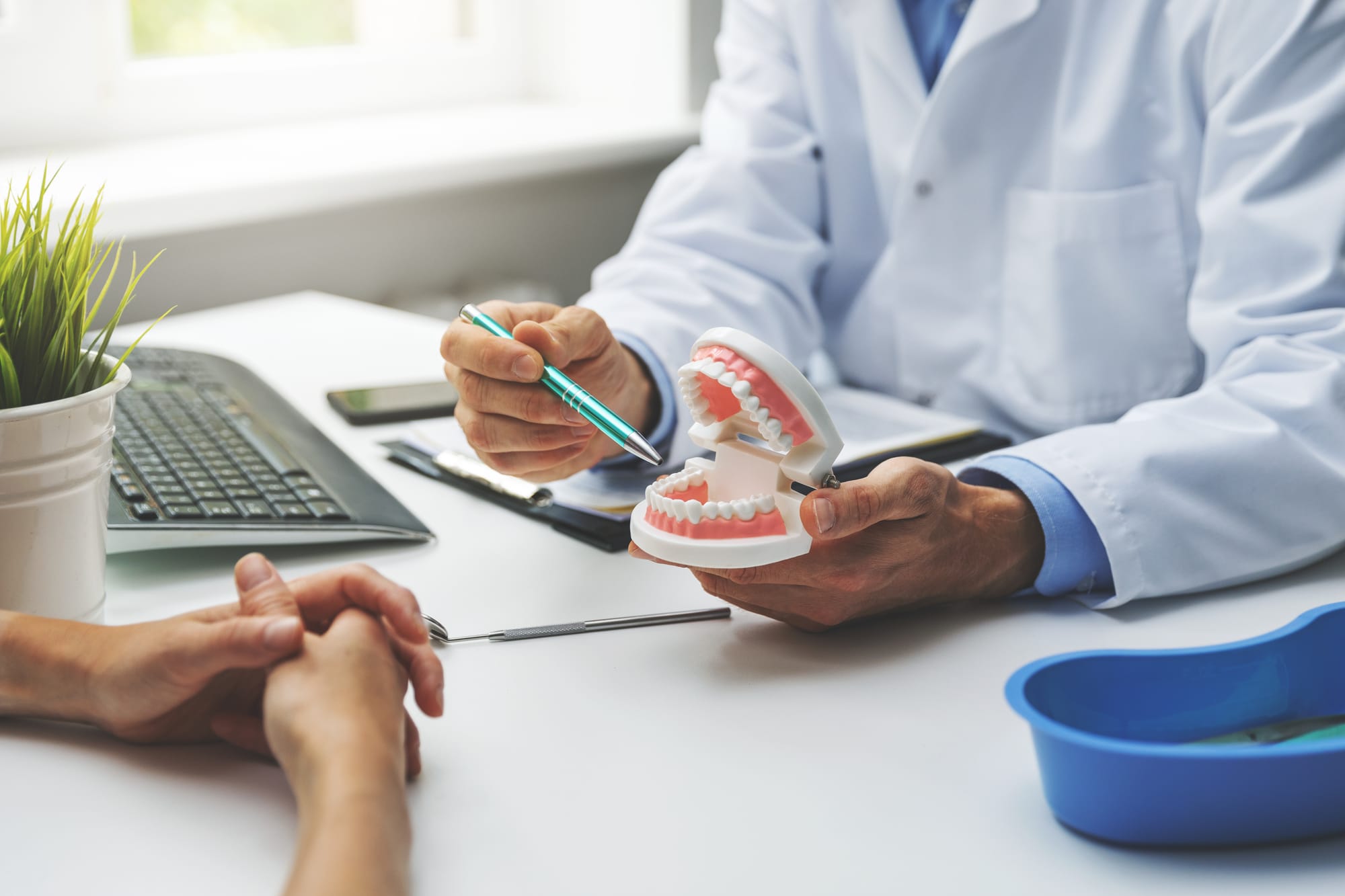
Maintaining good oral health is essential not only for your smile but also for your overall health. Poor oral hygiene can lead to a variety of dental and medical problems such as gum disease, infection, bone loss, heart disease, strokes and more. However, improving your oral health can be easy with the right practices. Here are 10 simple tips to help you look after your teeth and gums, ensuring a healthy mouth and a beautiful smile.
1. Brush Properly
Brushing twice a day is the cornerstone of good oral hygiene. However, it's not just about frequency but also about technique. Hold your brush at a 45-degree angle to your gums. Use small, gentle circular motions to clean the outer, inner, and chewing surfaces of your teeth. Make sure to brush your teeth for at least two minutes during each session to effectively remove plaque and bacteria.
2. Use Fluoridated Toothpaste
Fluoride is a leading defense against tooth decay. It fights germs that can lead to decay, and it provides a protective barrier for your teeth. Using fluoridated toothpaste helps to strengthen the tooth enamel and reduce the risk of decay. Regardless of the version or flavor, make sure your toothpaste contains fluoride.
3. Floss Daily
Flossing removes particles and plaque that brushing can't reach. It helps to clean the tight spaces between the teeth and under the gumline. For best results, use a piece of floss up to 18 inches long, allowing you to use a fresh area for each few teeth without reinserting bacteria you just removed. Be gentle, and make sure not to snap the floss into your gums.
4. Use Mouthwash
Mouthwash does more than just freshen your breath. Therapeutic mouthwashes can help reduce plaque, prevent or reduce gingivitis, reduce the speed of tartar development, or a combination of these benefits, according to the American Dental Association (ADA). Plus, rinsing with a mouthwash after brushing and flossing can get into crevices that might be missed, adding an extra level of protection.
5. Increase Water Intake
Water continues to be the best beverage for your overall health — including oral health. Drinking water after every meal can help wash out some of the negative effects of sticky and acidic foods and beverages in between brushes. Tap water is preferable as it is likely to contain fluoride which can help prevent tooth decay.
6. Eat Crunchy Fruits and Vegetables
Fresh, crunchy produce contains more healthy fiber and is one of the best choices for your teeth. Chewing these fruits and vegetables can help scrub your teeth somewhat as you eat, and they require more chewing, which is good for your teeth. Moreover, they stimulate the gums and reduce cavity-causing bacteria.
7. Avoid Sugar and Acidic Foods
Sugar converts into acid in the mouth, which can then erode the enamel of your teeth. These acids are what lead to cavities. Acidic fruits, teas, and coffee can also wear down tooth enamel. While you don't necessarily have to avoid such foods altogether, it doesn't hurt to be mindful.
8. Visit Your Dentist Regularly
Regular visits to the dentist can help ensure that your oral hygiene is on the right track. During these visits, your teeth are cleaned of calculus, which can accumulate even if you brush and floss regularly. Your dentist can also check for any issues in your mouth that you may not feel or see yet.
9. Quit Smoking
Smoking harms the body's immune system, which makes it difficult for the body to heal tissues, including those in the mouth. Smoking is strongly associated with the onset of gum disease. Since smoking impacts the attachment of bone and soft tissue to your teeth, smokers also experience an increased risk of periodontal diseases and infections.
10. Use a Mouth Guard
If you grind your teeth while you sleep or during sports, wearing a mouth guard can be a great investment. Grinding can wear down your teeth and lead to other oral health problems. Your dentist can make a custom-fitted mouth guard, which will offer protection and ensure comfort.
Conclusion
Improving your oral health is an investment in your overall health. With these simple steps, anyone can achieve better oral hygiene which leads to a healthier life. Incorporate these tips into your daily routine to keep your smile bright and your teeth healthy. regular visits to a dental clinic, brushing with fluoride toothpaste, flossing, and quitting smoking are some of the most crucial steps in preserving the long-term health of your teeth and gums. Every small change in your dental routine can create a significant positive impact on your oral health.